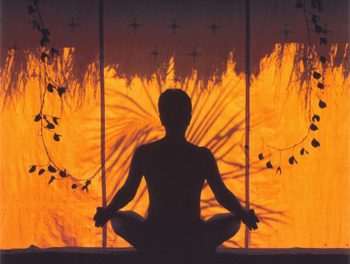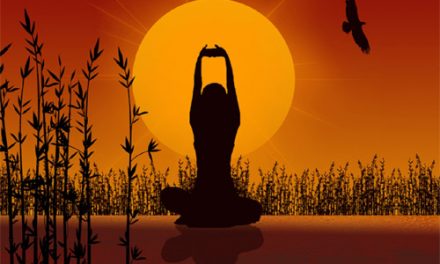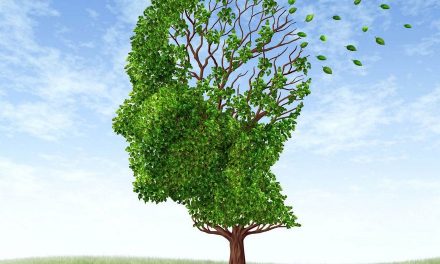Yoga helps in the rejuvenation of the body. Resistance, observances, posture and pranayam have a major role in rejuvenation. Practice of Yoga maintains the functioning of all physical and mental organs in their natural condition. It is needless to say that functioning of organs in their natural state is the key to good health.
The health obtained through artificial means cannot be said to be stable. Excessive use of medicines makes the organs not only sensitive but it also completely ends the chances of their functioning in natural condition. A medicine that is taken to control one particular disease gives birth to another disease. These physical ailments produce mental disorders.
Different yogic actions in Yoga – Asana, pranayam, austerity, mudra, bandh, shatkarma etc. are used to purify blood, nervous system and vital life. All faecal matter is thrown out of the body, which is the main cause of diseases and disorders. The chariot of life moving on the basis of good food, sleep and celibacy never deviates from the path of good health. Yoga philosophers had fixed the form of the first two steps of Ashtanga Yoga, namely resistance towards passion and observances, were actually the basis of healthy people and healthy society. Resistance towards passion includes not harming other creatures, truth, not stealing other’s things, celibacy, not collecting unwanted things which will contribute in building progressive society on one hand and on the other hand, observances like cleanliness, satisfaction, austerity, study of religious books and deep devotion towards God represent the personal development.
It should not be understood that non-violence and other observances are not with the purpose of personal development. Finally, the acceptance of people maintains the discipline of the society. Non-violence and observances except celibacy are relevant to the society.
Whereas, cleanliness etc. are relevant to an individual. Saint Patanjali is claiming the observances as most important vows on this very basis. Patanjali’s views are clear that the practitioner of Yoga should not follow nonviolence in the pretext of nation, time and circumstances. Although, nation, time and circumstances could be suitable with respect to cleanliness, austerity, self-study of religious books etc. The word ‘austerity’ used with reference to observances has a broad scope in Indian literature. Saint Patanjali has given a very brief concept in the form of kriya Yoga, self study of religious books and deep devotion towards God along with austerity which is an important part of it. It is clear that austerity is the final outcome of physical and mental energy and consciousness, not exploitation of physical organs. Saint Patanjali considers tolerating dilemmas as austerity. He says that a person has the capacity to bear two kinds of dilemma, namely logic at mental level and energy at physical level.
Indian sages have recognized the dilemmas coming up at physical and mental levels as thirst-hunger, cold-heat, happiness-unhappiness, loss-gain, fame-infamy, victory-defeat, etc. The capacity to bear these confusions is tolerance, which is known as the basic quality of personal, family, social, political, religious and spiritual life.
Austerity has been explained further in some religious texts. The factors of resistance towards passion and observances have been included in physical, verbal and mental types. Actually pretentious luxurious life style destroys the moral strength of a person at a very fast pace. A person who gets used to comfortable life style cannot imagine living without these comforts. A person leading a luxurious life feels handicapped in the absence of comforts and luxuries. The body becomes a bundle of diseases due to this tendency. At this point the nature appears to be an enemy. Austerity is the invitation to sacrifice luxurious life style that is away from the nature. Asana or posture is the most popular branch of Yoga to maintain a balanced physical structure. Saint Patanjali has given a very simple and easy definition of posture.
He says that sitting in a comfortable position is posture. Different writers have different views with respect to number of asanas. One of the interesting views has been expressed in Dhyanbindupanishtkar. According to him, the number of postures is uncountable. It is necessary to strengthen the nerves and muscles in order to lead a healthy life for longer time. The nutritional elements taken in the form of food reach different parts of the body through pranayama. In the absence of this, the body does not develop properly. Posture and light exercises strengthen our respiratory system. The yogasanas are successful treatment for various diseases. An easy and effective treatment for different types of diseases occurring in stomach, back, neck and knees is possible through asana.










